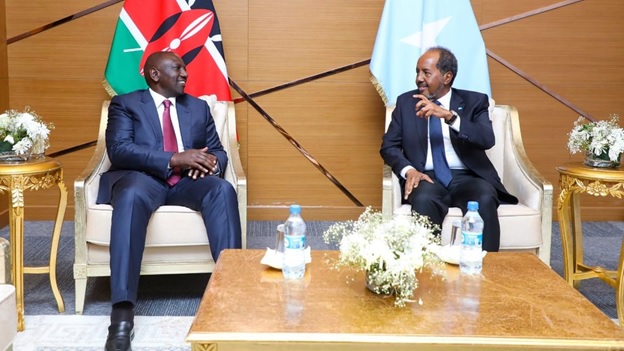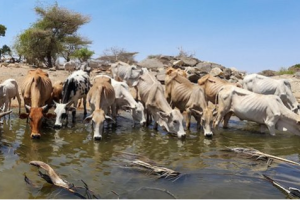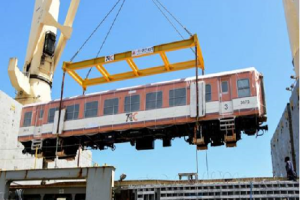
Somalia’s neighbours on Wednesday approved Mogadishu’s request for an all-out war — including its need for lethal weapons and coordinated support to — annihilate Al-Shabaab militants.
The decision came out of an inaugural meeting of frontline states with Somalia, a definitive gathering between Mogadishu and all its immediate land neighbours in the Horn of Africa, to draft a common counter-terrorism strategy.
Kenyan President William Ruto, Djibouti’s Ismael Guelle and Ethiopian Prime Minister Abiy Ahmed agreed with the host Hassan Sheikh Mohamud that Al-Shabaab must be smoked out of every part of the Horn.
“(The Summit) welcomes the request by the Somali government to obtain both lethal and non-lethal support to equip the newly-generated SNA (Somali National Army) units and to enhance the firepower capabilities of current SNA operational units,” a communique said on Wednesday.
Somalia has lately been raising the tempo against Al-Shabaab, cheering on village vigilantes to fight alongside the SNA, while banning Shabaab narratives from the media, and freezing bank accounts linked to the militant group.
But the terrorist group has often responded with vengeance, targeting government offices, civil servants and civilian areas with explosives to avenge for lost territory.
Somalia is also still under an arms embargo, a thirty-year ban that has morphed every year from the time it was imposed to prevent clan warlords from obtaining weapons. In November, the UN Security Council extended the arms embargo until November this year, arguing Al-Shabaab was still a threat to the country.
At the time, Kenya, which was a non-permanent member of the Council, voted among the 11 countries to support the embargo with Russia, China, Gabon and Ghana abstaining. Somalia protested the prolongation of the ban and it means it has to report every weapon it requests from the international community, as well as any military training it receives, to the sanctions committee of the UN Security Council.
The decision on Wednesday may have been influenced by the reality that the African Union Transition Mission in Somalia (Atmis) has only ten months left on its mandate, signalling a possible gap to be filled on the security front. The communique said the Atmis, whose troops come from Kenya, Uganda, Ethiopia, Djibouti and Burundi have been instrumental in supporting the SNA fight. But the leaders also agreed that there is a need to plan for the future.
“The Summit stressed the urgent need to jointly plan a decisive operational strategy against Al-Shabaab and acknowledges the need to mobilise regional support for timely, decisive operations,” it said.
“The Summit agreed to jointly plan and organise a robust operational campaign at the frontline states level, of search and destroy Al-Shabaab on multiple frontlines aiming at the key strategic Al-Shabaab strongholds across south and central Somalia.”
The four countries agreed to establish a joint operations mechanism that coordinates the operations’ holistic capabilities and multipliers to deter and defeat the enemy and said they will work on “new partnerships and enhancing solidarity among Somalia’s neighbouring states to stand by Somalia in a united fight against a common terrorist threat to demonstrate a unified stance on confronting Al-Shabaab.”
Source: The East African
The Ethiopian Herald 5 February 2023



